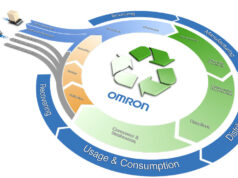Anyone who has ever worked for a Thai company knows just how pervasive paper is. Some offices are bursting at the seams with binders, boxes and cabinets full of documents. And on any given day, a steady stream of messengers arrives with more sheets. The thing is, this has been happening for as long as most people can remember.
On one hand, it’s remarkable that companies in Thailand can function in spite of their paper dependency. On the other hand, this sea of documents slows processes down and prevents the country from reaching its goals.
“Thailand wants to be the hub of ASEAN and it has a number of advantages to reach that goal. However, there are also things that can be improved,” Edward Senju, Chief Revenue Officer at Sansan Global, explains. “For example, doing business here can be slow. It needs to be sped up and digitization is one way to do that. Changing things like this can make the country more attractive to investors.”
Implementing that change is no easy task because many Thai companies see paper as a security blanket. So, while Sansan Global has developed the technology to digitize invoices and other documents to create a streamlined accounts payable process, the firm is fully aware acceptance will take some time.
“In Thailand, people like to follow what they are already doing. Paper is all they know. There are areas, such as human resources or invoices, using paper despite the fact there is no regulation requiring it. Sometimes people don’t see the benefits of doing something different because they are focused on the task,” Edward states.
Even if businesses do see the benefits, adopting innovation is something that can be scary for those within an organization. That is especially true in Thailand where paper plays such a vast, albeit unnecessary, role in daily operations.
“This is a very different way of working from what people are used to in Thailand. But going paperless streamlines processes and creates a more efficient workplace,” Edward points out. “Some people might be afraid it will take their job. In reality, it allows them to focus on tasks with a higher value.”
Edward believes Thailand’s paper dependency is actually creating a never-ending cycle of work for companies that can potentially harm them in the long term.
“There is a real human cost to not digitizing invoices,” Edward says. “Let’s use a medium-sized company as an example. They can have 500 or more invoice approvals in the average week. That’s 2,000 pieces of paper that need a signature or stamp monthly. That doesn’t even factor in getting the document from one point to another through the various stages of the approval process. How much time is lost because of this?”
Also Interesting: Inspecting responsible business in Asia
SaaS meets BPO

Edward likes to describe Bill One as SaaS meets BPO. To understand why that is, it’s important to understand the basics of how the technology works.
“For vendors, they can keep following the same processes except instead of sending an invoice to your office, they will send it to our address. We then scan it and upload it to the cloud,” Edward details. “For customers, they have access to all these documents in a central database. Digital checks and approval workflows can be done seamlessly and in real-time from here. Bill One is a one-stop solution.”
And it’s not just invoices. Bill One handles all types of documents. Purchase orders, contracts and HR files are some of the other items that can be digitized. This provides businesses with a broader view of their organization while gaining access to information that may not always be possible to efficiently collect in a paper-based world.
“We are creating a new database that can improve how businesses work. For example, you can spot trends in payment delays or stay on top of renewal information. Building this database also allows you to find red flags about partners, such as if they have a history of non-payment. It adds a level of transparency that most companies don’t currently enjoy,” Edward says.
He continues, “With the information digitized and more readily available, companies can create reports faster as opposed to waiting until after a monthly close. This helps guide high-value decision making in the boardroom. We are not just creating a more efficient process but one that establishes a stronger platform for companies.”
Paperless pioneer

Edward admits Bill One may have arrived two years too early in Thailand. It will take time and effort to curb the business community’s paper dependency. That challenge is also what made the country an attractive next stop after Sansan Global opened its Singapore headquarters in 2015.
“We are in Thailand because we want to be a pioneer. It’s a challenge to change the mindset here. But we also see it as an opportunity to lead,” Edward proclaims. “We are changing the way people work and the mindset of how they work. That is not always easy. We need to start by educating companies on why back-office digitization can be beneficial.”
This lesson is one Sansan came to learn through their own experiences. That’s because Bill One was created by a company employee simply looking to work more efficiently.
“At Sansan, our core business in Japan was scanning business cards to help companies make a database of their contacts. That meant there was a lot of scanning equipment in our office. One day someone in the accounting department wanted to see if it was possible to use the scanning equipment on invoices instead of manually inputting data into the computer. That is how Bill One was born,” Edward recalls.
Breaking Thailand’s paper dependency won’t happen overnight, but Edward is confident they will eventually come around. Because much like the original Sansan employee who started scanning invoices, most businesses have someone tired of the endless document shuffling.
“There are no limitations as to where Bill One can work. It can be a useful tool for any business struggling with paper. Sometimes it is just about finding the one or two employees who know from experience how much going paperless can help the company,” Edward concludes.
Keep Reading: Thailand continues its rapid embrace of digital financial services
About Sansan
The mission of Sansan is “turning encounters into innovation” and has launched several innovations to make that a reality. This lineup includes its namesake Sansan B2B service that powers digital transformation in companies, the Eight career management app for individual professionals, Bill One for online invoice receiving and Contract One for cloud-based contract management. For additional information, click here.


































